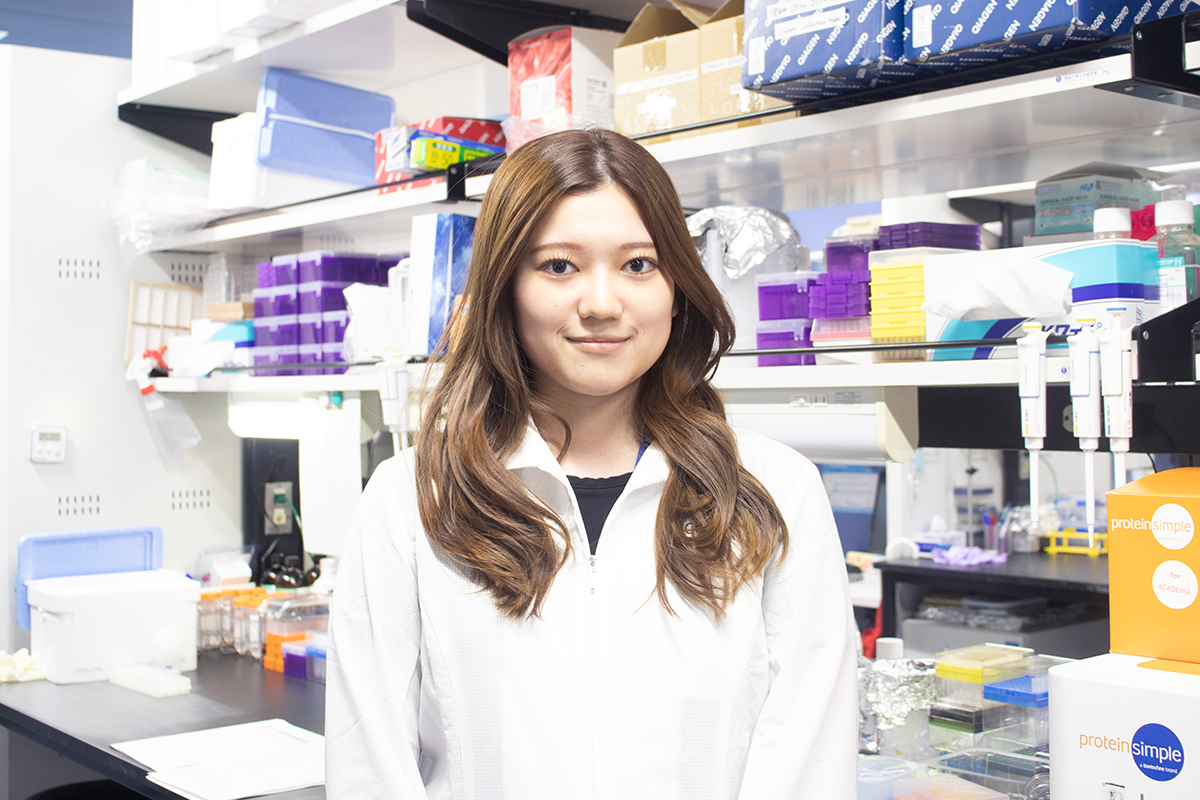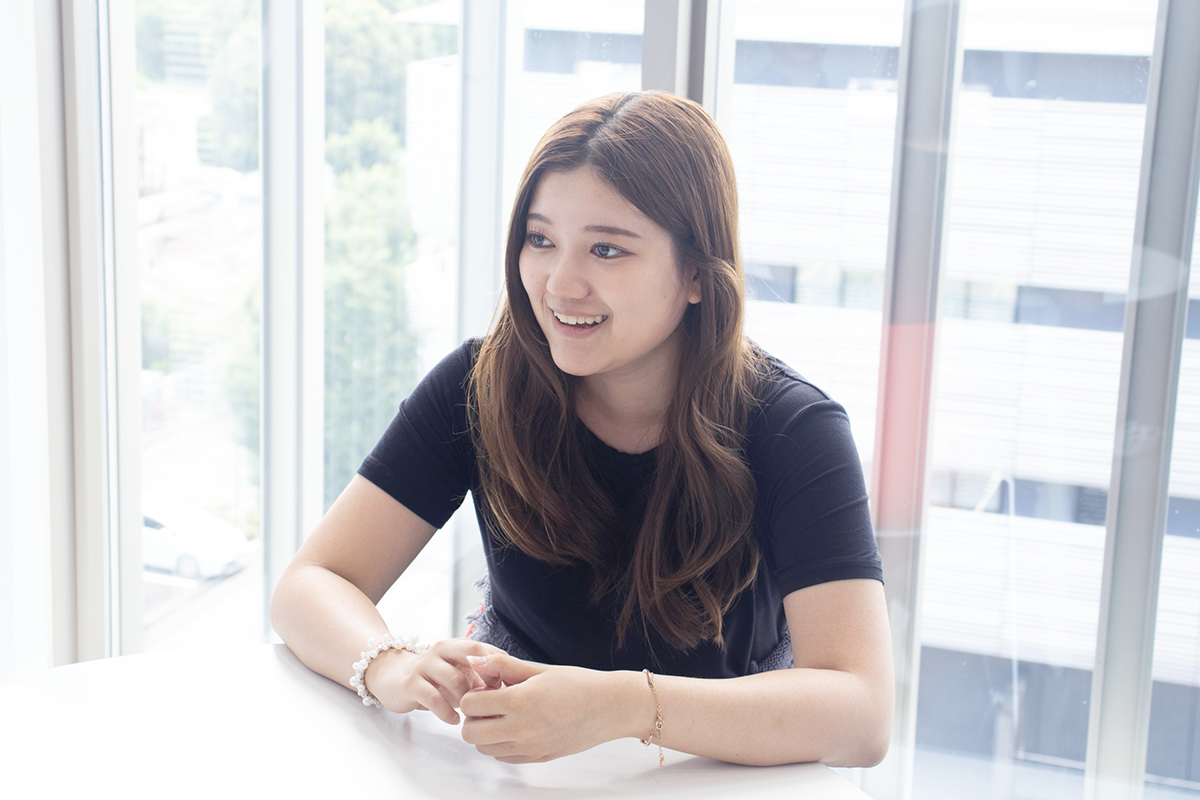
CiRA Reporter
CiRA Reporter

Internship
October 16, 2024
CiRA Research Internship Program Student Interview vol. 9
-Enjoying Independent Research and Chasing a Dream in Science-

Ichika Aradono (University College London)
poses at an open lab in CiRA.
"I am very much in love with this lab," explained Ichika Aradono, who recently completed her Bachelor of Science in the Cancer Biomedicine program at University College London, U.K., when asked about her experience during the CiRA Research Internship Program this summer.
Aradono spent four weeks from mid-July as an intern in the laboratory of Dr. Kazuo Takayama (Junior Associate Professor, Department of Cell Growth and Differentiation), where she employed recently published microfluidic cell culture technology developed by Takayama to study how the perfusion of cell culture medium affects hepatocellular carcinoma cell line by monitoring cell growth and changes in gene and protein levels.
"It is very independent," she said of her impression of the Takayama Lab and continued, "not something I had experienced at UCL."
She further explained Takayama coordinated one-on-one meetings with every lab member so she could learn about the various research projects everyone was working on. As an undergraduate student, she has had relatively little flexibility in taking part in deciding and conceptualizing the directions of her projects. She was thus very impressed by Takayama’s attitude of running his lab, always encouraging everyone, from undergraduate students to postdoctoral researchers, to plan and develop their research projects according to their research interests and providing resources to fulfill their academic aspirations.

Aradono also mentioned that the COVID-19 pandemic had impacted her undergraduate experience immensely, as there were minimal practical sessions during her first two years of study. Fortunately, she successfully applied for a Biomedical Vacation Scholarship from the Wellcome Trust last year to investigate how the interaction between Fusobacterium nucleatum and Siglec-7 affects immune responses at the University of East Anglia, where she also encountered gastric organoids and gut-on-chip models. Building upon that experience and her work at the University College London Cancer Institute, where she was involved in establishing and characterizing gastric and intestinal organoids, she has developed an interest in disease modeling.
During her internship at CiRA, she learned to use microfluidic devices for advanced cell culture. "This microfluidic system is applicable to study any disease," she said. She further explained that the experience at CiRA bolstered her interest in disease modeling using organoids and perhaps pairing them with microfluidic devices to recapitulate conditions inside our bodies.
Being originally from Tokyo, Aradono said that she greatly appreciates the traditional architecture in Kyoto. "But it is so hot here," she said as she described her trip to Kiyomizu-Dera Temple. "I thought I would turn into yakiniku (grilled meat)!"
Following her internship at CiRA, Aradono will return to the U.K. to begin her graduate studies for a master’s degree at Imperial College London. Growing up in Japan, she always dreamed of performing research at CiRA. For her Ph.D., she is considering returning to Japan, so she might fulfill that dream one day by continuing her scientific training at CiRA.
We hope your dream will come true, Aradono!
-
Interviewed and written by Kelvin Hui Ph.D.
CiRA Research Promoting Office






















